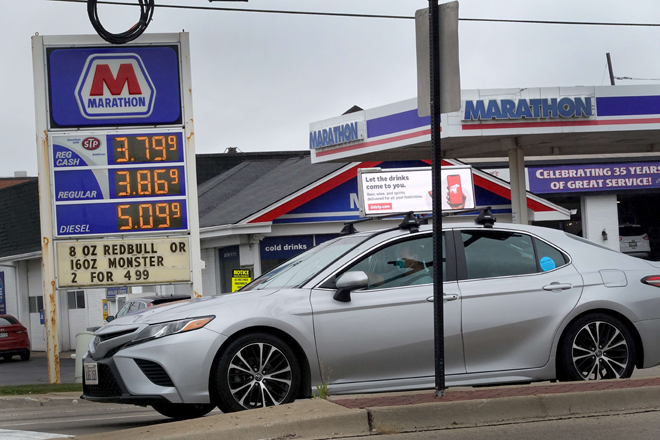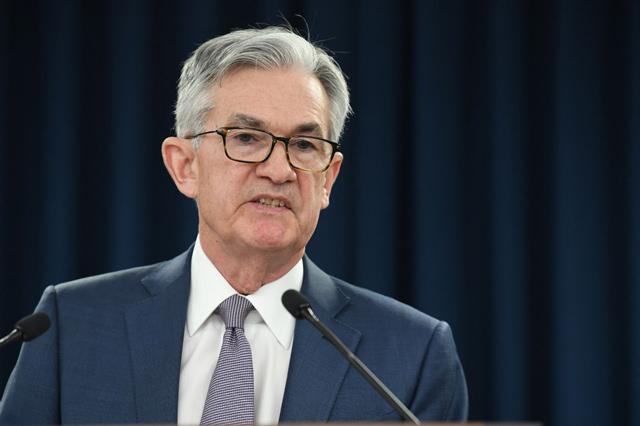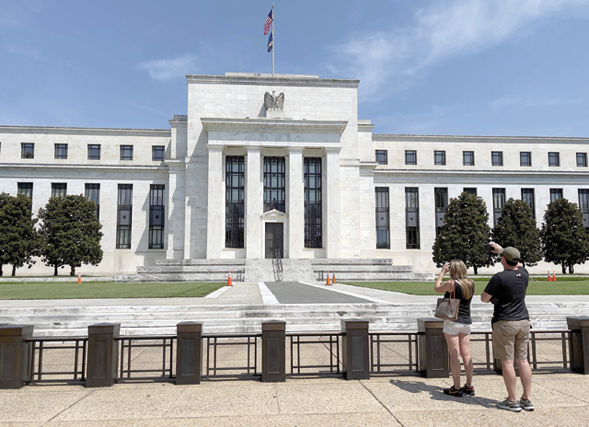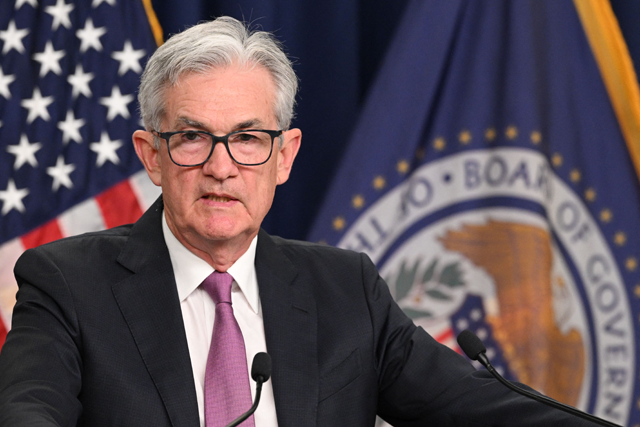You are here
US inflation likely eased in August — but not enough
By AFP - Sep 13,2022 - Last updated at Sep 13,2022

Customers purchase gas at a Marathon station on Monday in Elk Grove Village, Illino is as falling gas prices are raising optimism that inflation is on the decline (AFP photo)
WASHINGTON — US inflation likely slowed in August, largely thanks to falling gasoline prices, but not enough to satisfy policymakers, especially President Joe Biden, as high prices continue to inflict pain on American families and businesses.
The consumer price index, a key measure of inflation, is expected to have fallen in August compared to the prior month — the first decline since November 2020. The Labour Department was due to release the latest data on Tuesday.
The annual inflation pace also is likely to have improved to 8 per cent, according to a MarketWatch consensus forecast, from the blistering 9.1 per cent rate in June — the highest in 40 years.
Prices have been soaring for months, exacerbated by the Russian invasion of Ukraine, which has impacted energy and food prices, as well as ongoing supply chain snarls amid COVID lockdowns in China.
While Americans will welcome relief at the pump, from the steady drop in gasoline prices, high costs for food and housing continue to strain family budgets.
"Risks remain skewed to the upside, due to an uncertain outlook for key inputs, including agricultural and energy commodities, as well as the pass-through of wage gains in a tight labour market," according to Barclays US analysts Pooja Sriram and Jonathan Hill.
They project a 1 per cent increase in food prices in the month, with housing up 0.6 per cent.
Inflation also has become a hot political issue just weeks away from key midterm congressional elections, and Biden has made fighting high prices his top domestic priority, so any relief will be welcomed at the White House.
"Inflation is way too high, and it's essential that we bring it down," Treasury Secretary Janet Yellen said on Sunday, echoing a comment she and other administration officials have made repeatedly to show their sympathy with the plight faced by consumers and firms.
Recession risk
The Federal Reserve (Fed) views inflation as the biggest risk to the world's largest economy, and has moved aggressively to cool demand, increasing the benchmark lending rate four times this year, with a third consecutive three-quarter point hike widely expected next week.
The Fed actions increase the cost of borrowing for homebuyers and businesses, which tends to cool investment and spending.
Fed Chair Jerome Powell has said the central bank will do whatever it takes to ensure high prices do not become entrenched, even at the risk of tipping the economy into a recession.
"The clock is ticking," Powell warned Friday, pledging to "keep at it until the job is done".
Yellen acknowledged that there is "certainly a risk" of an economic downturn amid the rising lending costs, but she noted the US job market is "exceptionally strong" with nearly two vacancies for every worker looking for a job.
She cautioned that "we can't have a strong labour market without inflation under control".
Fed officials have said they are encouraged by easing price pressures, but not satisfied. A survey released Monday by the New York Fed Bank showed consumer inflation expectations fell sharply in August.
The strong job market — the unemployment rate was 3.7 per cent in August — also provides some comfort, giving policymakers room to maneuver, and potentially quell inflation without a steep increase in joblessness.
But the worker shortage remains a concern since it could fuel a dangerous wage spiral .
Related Articles
WASHINGTON — US inflation will remain "elevated" in coming months but will decline once supply bottlenecks and other temporary issues are re
WASHINGTON — The Federal Reserve (Fed) is poised to unleash another massive interest rate increase this week after the latest data showed a
WASHINGTON — The Federal Reserve (Fed) opened its second day of deliberations on Wednesday that were expected to produce another big increas


















